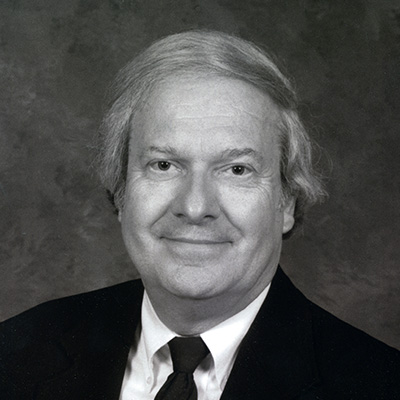Dr. Ross Hawthorne Bayard captivated students with dynamic lectures and rigorous standards for nearly four decades. With wit as sharp as his intellect, he charmed and challenged generations of Terriers, inspiring a love of history while demanding their very best.
Bayard died July 17, 2024, in Spartanburg.
“Ross was a very popular professor, particularly with students interested in studying the classics and Europe,” President Emeritus Joe Lesesne remembers. “He lived and breathed Wofford.”
Appointed to Wofford’s history department in 1961, initially for a single year, Bayard became a permanent fixture in 1964. He chaired the department from 1987 to 1991 and retired as a professor of history emeritus in 2000.
Throughout his career, Bayard taught a variety of courses, particularly in ancient world history, Russian history and 20th century European history. As a faculty advisor to student government in the 1960s and early 1970s, he mentored emerging leaders and fostered a sense of community on campus.
“He was demanding but fair,” says David Beacham ’77. “He was well-read, thoughtful, entertaining and informative. It was a pleasure to be in his class. … All he asked is that you did the work. If you didn’t, he would grade you accordingly.”
Bayard spent his summers traveling the globe: Russia, Poland, the Middle East and Asia were some of his destinations. These travels laid the groundwork for wellorganized Interim trips with students.
Bayard also engaged with the community through public presentations and civic club talks.
The Hon. Henry F. Floyd ’70, senior judge for the U.S. Court of Appeals for the Fourth Circuit, says Bayard was genuine, and he supported students even after they graduated. He was also a little quirky, Floyd adds.
“It was well known that he would not accept anything written in black ink — only in blue,” Floyd remembers. “I asked him why, and he would say he thought it smelled differently.”
Bayard grew up in Connellsville, Pa. He completed his undergraduate degree at Washington and Lee University in 1957 and went on to earn M.A. and Ph.D. degrees in history from the University of South Carolina. He also did graduate work at Johns Hopkins University.
Bayard was a member of First Presbyterian Church and enjoyed keeping close tabs with the college during retirement. He liked dining out and running into colleagues and former students.
